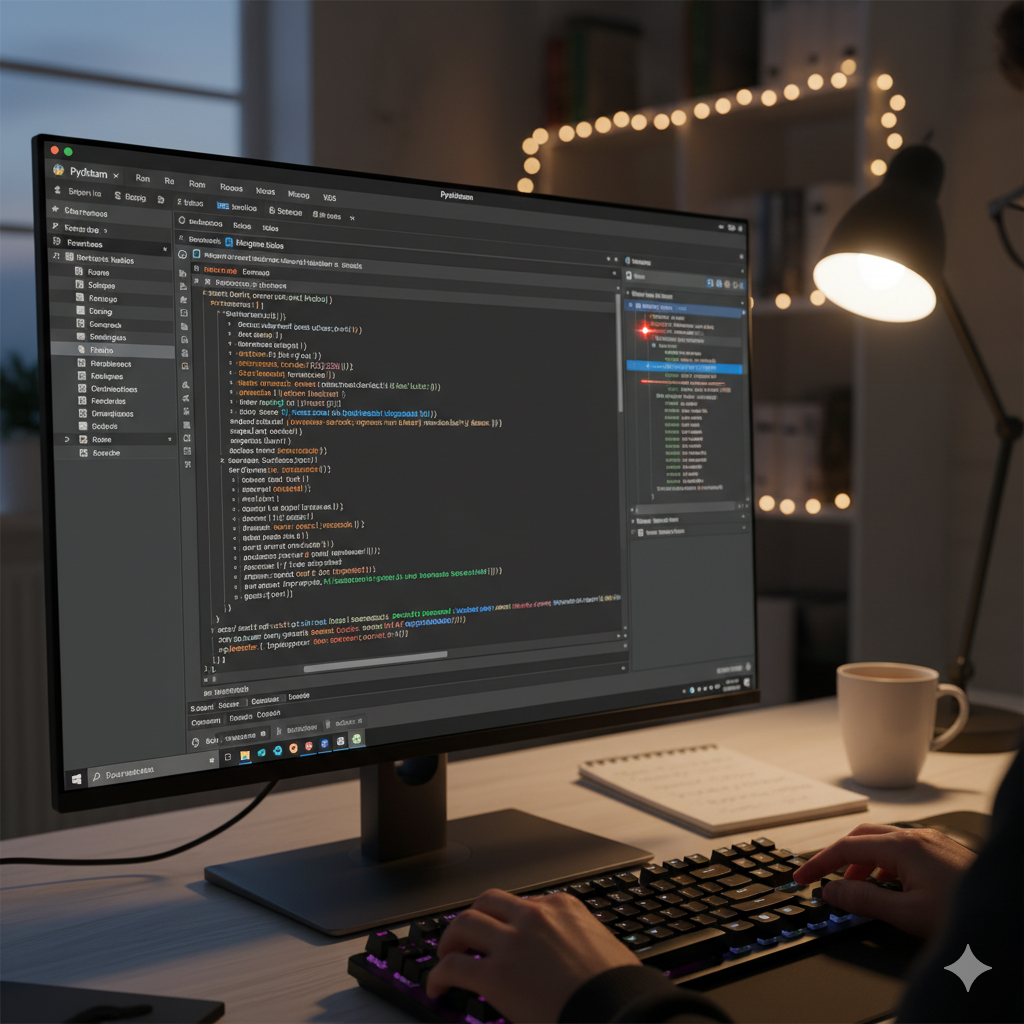For six years, PyCharm was my go-to IDE. I was completely loyal to it. Like many Python developers, I was a huge fan of its powerful features and the seamless way it handled my projects. But as my work changed, what was once my favorite tool started to hold me back. Here’s a look at why I finally made the switch to VS Code.
Life with PyCharm Link to heading

If you’re a developer who works only with Python, PyCharm is a dream. Its features for frameworks like Django are just unbeatable. The debugging, in particular, is the best I’ve ever seen. You can set breakpoints and evaluate expressions on the fly, and the user interface for it is so intuitive and interactive. The whole experience just felt powerful. The UI is also very colorful, which made coding feel more creative. Installing new libraries was a breeze—you could do it all from the UI without touching the command line. For a Python-only job, PyCharm was perfect.
The Change That Forced My Hand Link to heading

About three years ago, my work started to evolve and I started shifting more on DevOps. I wasn’t just doing Python anymore. I was getting extensively into DevOps, AI automation, and I was juggling a lot of different projects. This meant I was constantly switching between multiple code repositories and writing in different languages, including YAML for CI/CD pipelines.
This is where PyCharm started to become a problem. Opening just three to five instances for different repositories would eat up over 6 GB of memory. My computer would slow down, and PyCharm would freeze up. It was so frustrating and it completely broke my concentration. I needed something that could handle my new, more diverse workload without consuming so many resources.
My First Days with VS Code Link to heading

When I first opened VS Code, it felt like a completely different world. It was a raw editor, not a full-featured IDE. It wasn’t nearly as interactive or colorful as PyCharm. It felt like a big step back because a lot of basic tasks required me to use the command line, which I wasn’t used to.
But I quickly learned its greatest strength: it’s incredibly lightweight. VS Code usually uses only about 100-500 MB of memory. I could open multiple instances for all my projects and my computer wouldn’t even notice. The memory only starts to climb if you go crazy with extensions, which is a key part of the VS Code experience. Another thing that made a huge difference was the project switcher. You can literally switch between projects with just two buttons, which is incredibly handy when you’re jumping between different tasks.
The Trade-offs: PyCharm vs. VS Code Link to heading
I still see clear pros and cons for both editors.
PyCharm Link to heading
What I loved:
- A really interactive and colorful UI.
- The best debugging features out there.
- Very easy to learn and get started with.
- Simple UI for installing libraries.
What was tough:
- It’s a memory hog. PyCharm needs at least 2 GB of memory to even run smoothly.
VS Code Link to heading
What I love:
- It’s incredibly light on resources. You can run multiple instances without any slowdown.
- It’s fast and efficient.
- The project switcher is a huge time-saver.
What was a challenge:
- The UI isn’t as polished. Even with all the themes available, I still think PyCharm has a better balance of character sizes and colors.
- The Find & Replace functionality feels a lot slower and less efficient than it does in PyCharm.
- There’s a small learning curve at the beginning. Things like setting up a
launch.jsonfile for debugging can be tricky at first, but it gets much easier with practice.
The Final Decision Link to heading
In the end, I made the move because of a practical need for a more efficient and flexible tool. I’ll always appreciate PyCharm’s elegance and power, but VS Code’s minimal resource consumption and flexibility became essential for the way I work today. It wasn’t about a single extension; it was about the core design of the editor that let me work faster and more efficiently.